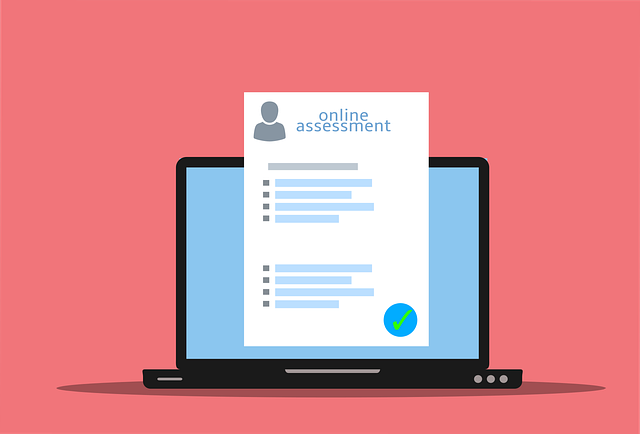TL;DR:
Adhering to UK healthcare standards for informed consent forms is vital for patient safety and rights protection. Translation services play a critical role in bridging communication gaps among diverse patient populations, ensuring comprehension of rights, risks, and alternatives before treatment. These services must maintain form integrity while accurately translating medical terminology and legal terms related to data privacy, preserving validity and legality. Reputable healthcare documentation translation services, employing linguistically competent professionals with medical expertise, are key for precise, culturally sensitive translations aligned with NHS or regulatory guidelines, enhancing patient safety and care quality.
In the UK, informed consent forms are pivotal in ensuring patient autonomy and ethical healthcare practices. This article delves into the essential standards these forms must meet, highlighting the crucial role of translation services for non-English speaking patients. We explore key elements to consider during translation, best practices for implementation, and how these steps contribute to accurate communication and compliance with UK healthcare regulations. Understanding and adhering to these guidelines is paramount for healthcare providers to offer inclusive and high-quality care using effective translation services for informed consent forms.
- Understanding UK Healthcare Standards for Informed Consent Forms
- The Role of Translation Services in Ensuring Compliance
- Key Elements to Consider During the Translation Process
- Best Practices for Finalizing and Implementing Translated Forms
Understanding UK Healthcare Standards for Informed Consent Forms

Understanding UK healthcare standards for informed consent forms is paramount to ensuring patient safety and rights. The UK has strict regulations regarding patient consent, particularly in healthcare settings. Informed consent forms must be clear, concise, and written in a way that’s easily understood by patients from diverse backgrounds. This includes effective communication in multiple languages through translation services for UK informed consent forms, catering to the growing multicultural population.
Healthcare providers are responsible for translating these forms accurately, ensuring that every patient comprehends their rights, risks, and alternatives before agreeing to any treatment or procedure. Translation services should be professional and compliant with healthcare regulations, preserving the integrity of the original information while making it accessible to a broader audience.
The Role of Translation Services in Ensuring Compliance

In the intricate landscape of UK healthcare, ensuring compliance with informed consent forms is non-negotiable. These legal documents are pivotal in safeguarding patient rights and ethical practices. One critical aspect often overlooked is the role of translation services, especially within a diverse and multicultural healthcare setting. Accurate translation is essential to guarantee that every patient, regardless of their language background, fully comprehends the implications of their consent.
Translation services for UK informed consent forms play a vital role in bridging the communication gap. Professional translators who are adept in both medical terminology and their target languages ensure that complex information is conveyed clearly. This process is particularly crucial when dealing with diverse patient populations, where language barriers can impede understanding and potentially lead to legal complications. By leveraging translation services, healthcare providers can create accessible and culturally sensitive consent forms, fostering a deeper level of trust and participation from patients.
Key Elements to Consider During the Translation Process

When translating Informed Consent Forms (ICFs) for UK healthcare settings, several critical elements must be carefully considered to ensure compliance with local standards and regulations. Translation services play a vital role in this process, as they are responsible for accurately conveying medical terminology and legal language across different languages. The key is to maintain the integrity of the original meaning while adapting it to fit cultural nuances.
For UK ICFs, translators should pay close attention to ensuring that the consent form is clear, concise, and easily understandable by patients or their caregivers, regardless of their linguistic background. This involves using simple language, avoiding jargon, and providing explanations for complex medical concepts. Additionally, specific legal terms related to data privacy, patient rights, and clinical trial regulations must be accurately translated to maintain the form’s validity and legality.
Best Practices for Finalizing and Implementing Translated Forms

When finalizing and implementing translated informed consent forms in the UK, best practices involve engaging reputable translation services that specialize in healthcare documentation. These services should employ linguistically competent professionals with medical expertise to ensure precise and culturally sensitive translations. It’s crucial to align translated forms with original guidelines from the National Health Service (NHS) or relevant regulatory bodies.
Additionally, thorough review and editing by legal and clinical experts is essential to verify accuracy, clarity, and compliance with UK healthcare standards. Formating and design should maintain consistency across all languages to avoid misinterpretation. Regular updates and distribution of revised translations to healthcare providers ensure patients receive clear, up-to-date information, enhancing the overall quality of care and patient safety.
Ensuring your informed consent forms align with UK healthcare standards is vital to providing ethical and legal patient care. By employing translation services that specialise in medical documentation, you can guarantee accurate and culturally sensitive communication across diverse populations. When translating these forms, focus on key elements like clarity, simplicity, and compliance with regulatory guidelines. Following best practices for finalisation and implementation ensures your translated documents are effective, accessible, and meet the highest UK healthcare standards. Translation services play a crucial role in facilitating seamless care for an increasingly multicultural patient base.
